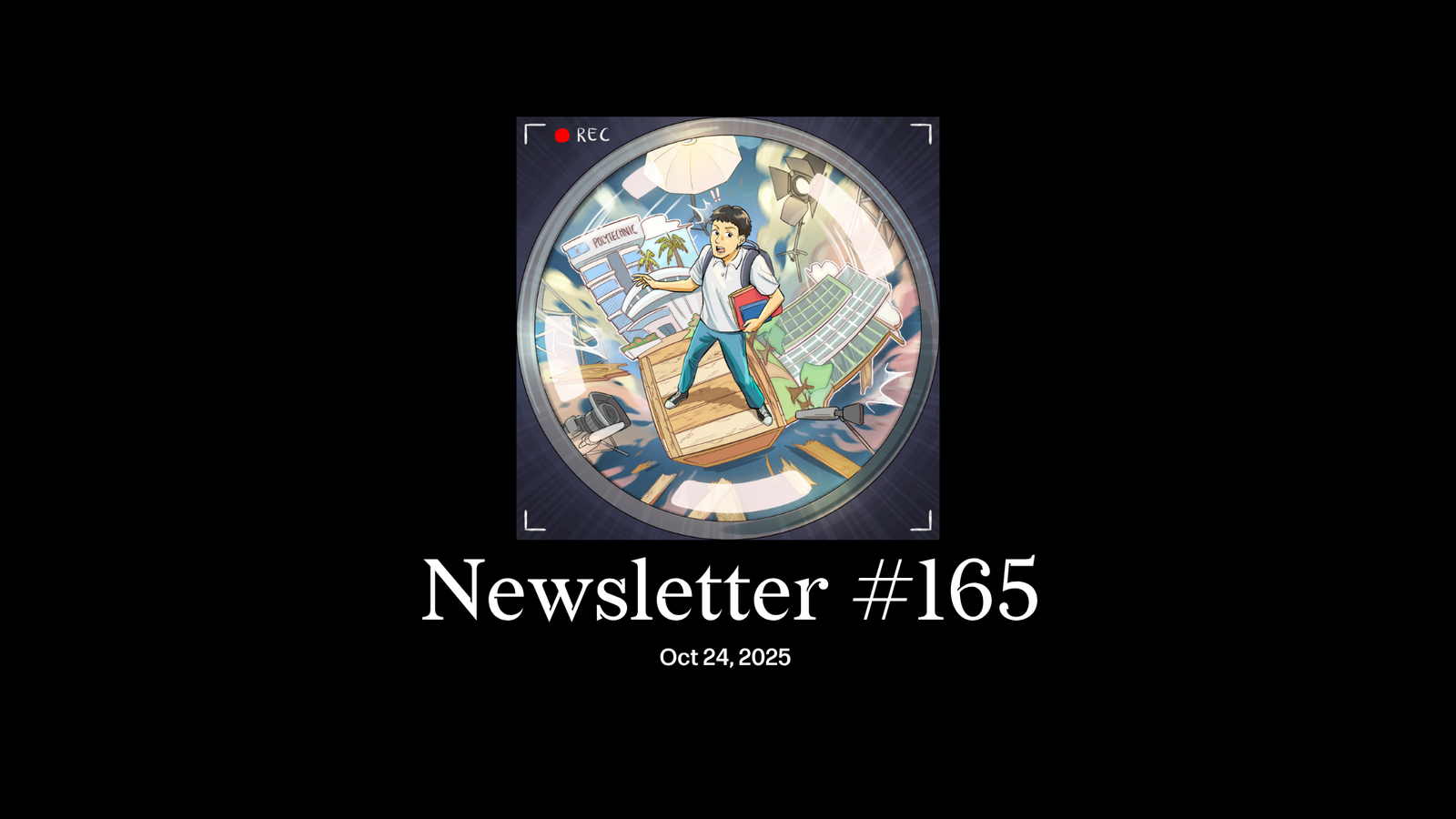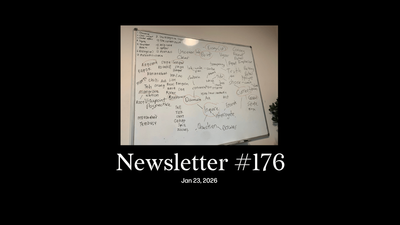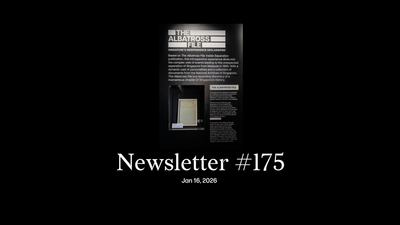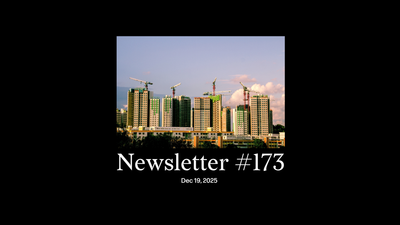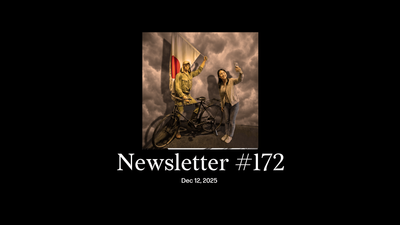Dear reader,
The Financial Times has just published an interview with Lawrence Wong. The paper has headlined the turbulence he expects as we usher in a “post-American” order, but we’ve heard some variant of that before. More interesting is the final bit, less scripted, where he describes the personal difficulties he’s faced in leadership and management, in terms of party renewal. Having to drop political incumbents, as he did before GE2025, is clearly emotionally tortuous for “Larry”. Read the transcript or better yet, watch it here.
Several of you have asked us to start analysing international issues a bit more, and this week my colleague Abhishek has written a great blurb on Japan’s first female prime minister.
- What does the elevation of Sanae Takaichi mean for gender equality in Japan?
- Singapore’s worrying links to the scam bosses of Prince Holding Group
- The acquittal of “procession” leaders Asrori, Koki, and Sobikun
- Alleviating the toll on the caregivers of those with dementia
- Changi Airport takes the lead in helping those with disabilities
- Who are the cinephiles striving to keep big screens alive?
- Festivals for Singaporean documentaries and cartoons
Referral Lucky Draw campaign. We’re grateful to the 15 of you who’ve signed up and shared discounted Jom membership links with your friends. And I hope more of you do! Visit the campaign page to find out how. Help us grow our Jommunity!
Letters. Tim Hill was “disappointed to see the Fullerton Hotel was intimidated into cancelling the Friends of Israel event”, while MK argues that “it is only conscionable for the Fullerton Hotel (and all other biz entities) to back-off doing business with Israelis in Singapore.”
Separately, NS man Alexander Chua responded to “The new Gen Z male hustle” by Toh Ee Ming, saying that the “blind pursuit of the Singaporean dream is a lonely endeavour, and I deeply resonate with the need to break free of a preordained Singaporean male future.”
SGABF. For the second year running, Jom will have a booth next weekend, Oct 31st-Nov 2nd, at the SG Art Book Fair. We intend to have three print issues on sale—Issue #3 goes to the printer tonight—alongside prints of our artwork and totes. Abhishek, Charmaine, Saki and I will be there. Come say hi!
Essay: “Backwards SG: the past and future of public deliberation in Singapore” by Max Yeo
This piece, as the title playfully suggests, takes a critical look at whether (and how) Lawrence Wong, the PAP, and Singapore at large can cultivate the sort of collaborative policymaking environment that he claims to want. (Forward SG is his signature campaign.)
The writer, Max Yeo, is a first-year student at Oxford, who first impressed the Jom team when he submitted a letter for publication earlier this year. I later enjoyed his writing on Substack—something I urge all new writers to start doing asap—and we then helped him shape this piece. It blends academic theorising, historical research and analysis, international examples, and on-the-ground research and interviews from a town hall in Sengkang.
I’ve focused more on the person rather than the essay here because, amidst all the hand-wringing about shorter attention spans and political disenchantment amongst the youth, it’s worth remembering that many of them care about the craft of good writing—and the future of this country. Max begins:
“With the heat and noise of GE2025 behind us, and the ordinary business of Parliament resumed, what does democracy look like for Singaporeans in the next five years? For most, it means seeing your member of Parliament (MP) occasionally amble around your neighbourhood, or perhaps appealing for a new covered walkway at their Meet-the-People Session. Some might reach to type a strongly worded post about the latest MRT breakdown or million-dollar HDB sale, or watch clips of the debates in Parliament. But beyond that, the thing called ‘democracy’ softly recedes into the background of our lives once more.
What if it didn’t? Governments have increasingly been experimenting with new ways to involve citizens in policymaking beyond traditional electoral processes. From citizens’ assemblies to deliberative polling, public deliberation as a democratic process has gained prominence as a means of addressing socially divisive issues. Even in Singapore, a country lacking any strong liberal-democratic tradition, public consultation has a much longer history than one might think.”
Read the rest of Max’s piece now. And thank you for your continued support of Jom, which allowed us to commission this young Singaporean’s first published piece today.
Jom raikan,
Sudhir Vadaketh, editor-in-chief
Jom
p.s. ah, Singaporeans. We never fail to endear ourselves to our neighbours. Last Saturday, a Lexus refuelled at a Shell station in JB—and then drove off with the nozzle still attached, yanking off the entire petrol pump. So goondu! In another busy news week, it offered some relief—nobody was injured, and the 36-year-old driver, profusely apologetic, hung around to assist the police.
Behind Jom’s art with Charmaine Poh
We’ve enlisted Dan Wong to illustrate this week’s piece on deliberative democracy. Dan is known for his satirical, sometimes raunchy, illustrations, which hold up a cheeky mirror to life in Singapore. His metaphorical production and stage sets reveal the way individual humans are often caught off-guard when confronted with the systemic powers that hold a greater sway over our lives than we may realise. It is this focus on the individual expression of confounding, conflicting feelings, that makes his work so powerful. In a society that conducts deliberation with an already forgone conclusion, artists feel a cognitive dissonance.
If you’ve enjoyed our newsletters, please scroll to the bottom of this page to sign up to receive them direct in your inbox.


